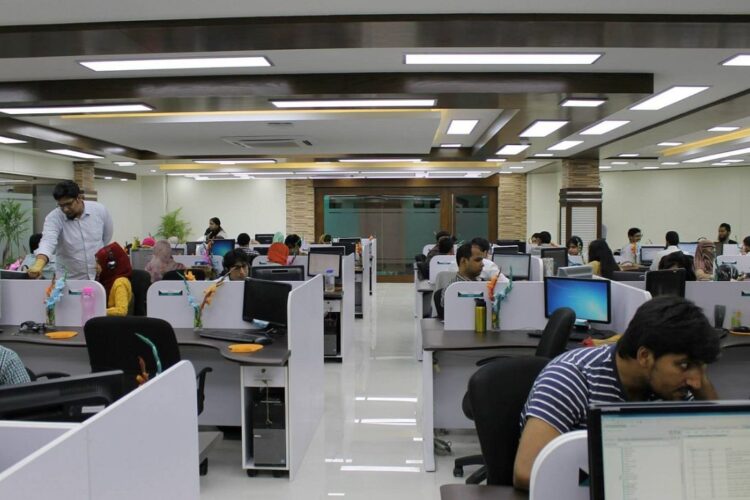
Introduction
Embarking on a junior software developer journey can be exciting and challenging. This comprehensive guide aims to provide aspiring developers with insights, tips, and essential information to successfully navigate the dynamic world of software development.
1. Understanding the Role of a Junior Software Developer
As a junior software developer, your primary responsibility is to assist in developing and maintaining software applications. This role typically involves collaborating with senior developers, participating in coding tasks, and troubleshooting issues within the software development lifecycle.
Starting your career as a junior software developer offers invaluable learning opportunities and lays the groundwork for future growth in the field.
2. Essential Skills for Junior Software Developers
Mastering certain skills is crucial for success as a junior software developer. These include proficiency in programming languages like Java, Python, or C++, understanding software development methodologies like Agile or Scrum, and strong problem-solving abilities.
Additionally, junior developers should possess excellent communication skills to effectively collaborate with team members and convey technical concepts to non-technical stakeholders.
3. Educational Requirements and Certifications
While employers often prefer a bachelor’s degree in computer science or a related field, some junior software developer roles may be accessible to individuals with relevant certifications or coding boot camp experience.
Certification in specific programming languages or technologies can enhance your credentials and demonstrate your proficiency to potential employers.
4. Navigating Job Search and Internship Opportunities
Securing your first junior software developer position may require patience and persistence. Networking with industry professionals, attending job fairs, and leveraging online job platforms are effective strategies for finding job openings.
Internship opportunities can also provide valuable hands-on experience and serve as a stepping stone to full-time employment in software development.
5. Advancement Opportunities for Junior Developers
While the title “junior” implies entry-level status, junior software developers have ample opportunities for career advancement. By continuously honing their skills, taking on challenging projects, and seeking mentorship from senior developers, juniors can progress to mid-level and senior roles within organizations.
6. Overcoming Challenges as a Junior Software Developer
Entering the software development industry can present challenges, including imposter syndrome, steep learning curves, and rapidly adapting to new technologies. However, by maintaining a growth mindset, seeking feedback, and embracing continuous learning, junior developers can overcome these obstacles and thrive in their careers.
7. Embracing Continuous Learning and Professional Development
Software development is constantly evolving, with new technologies and methodologies emerging regularly. As a junior software developer, investing in continuous learning through online courses and workshops and attending industry conferences are essential to stay updated and relevant in the ever-changing landscape of technology.
8. Cultivating Soft Skills for Career Success
In addition to technical expertise, soft skills play a crucial role in the success of junior software developers. These include teamwork, time management, adaptability, and effective communication. Cultivating these skills can significantly enhance your effectiveness as a developer and contribute to a positive work environment.
9. The Future Outlook for Junior Software Developers
The demand for skilled software developers continues to grow across industries, ensuring promising career prospects for junior professionals. With the increasing reliance on technology-driven solutions, junior developers can anticipate abundant opportunities for career growth and development in the years to come.
10. FAQs (Frequently Asked Questions)
How do I become a junior software developer?
To become a junior software developer, focus on acquiring relevant technical skills through education, certifications, or coding boot camps. Additionally, gaining practical experience through internships or personal projects can enhance employability.
What programming languages should I learn as a junior developer?
While the specific programming languages may vary depending on your career goals and industry preferences, learning languages like Java, Python, JavaScript, or C# can provide a solid foundation for junior software developers.
Is a degree necessary to become a junior software developer?
While many employers prefer a degree in computer science or a related field, some junior developer roles may be accessible to individuals with certifications or practical experience. Focus on showcasing your skills and expertise during the job application process.
How can I stand out as a junior software developer during the job search?
To stand out during the job search, highlight your relevant skills, projects, and achievements on your resume and LinkedIn profile. Additionally, networking with professionals in the industry and seeking mentorship can provide valuable insights and opportunities.
What career advancement opportunities are available for junior software developers?
Junior software developers can advance their careers by continually learning and acquiring new skills, taking on challenging projects, and seeking mentorship from experienced professionals. With dedication and perseverance, juniors can progress to mid-level and senior roles within the industry.
What are some common challenges faced by junior software developers?
Common challenges junior software developers face include imposter syndrome, adapting to new technologies, and navigating complex projects. However, these challenges can be overcome with perseverance, continuous learning, and support from mentors.
Additional Tips for Success as a Junior Software Developer
Stay Curious and Open-Minded
The world of software development is vast and ever-evolving. Maintain a curious mindset and stay open to learning new technologies, methodologies, and best practices. Embrace challenges as opportunities for growth and experimentation.
Build a Strong Online Presence
Establishing a strong online presence through platforms like LinkedIn, GitHub, and personal blogs can enhance your visibility to potential employers and peers in the industry. Share your projects, insights, and contributions to demonstrate your passion and expertise in software development.
Seek Feedback and Mentorship
Feedback is invaluable for personal and professional growth. Actively seek feedback from peers, mentors, and experienced developers to identify areas for improvement and refine your skills. Additionally, consider seeking mentorship from seasoned professionals who can provide guidance and support as you navigate your career journey.
Stay Resilient and Persistent
The journey to becoming a successful software developer may have its ups and downs. Stay resilient in the face of challenges, setbacks, and rejections. Maintain a positive attitude, persevere through obstacles, and celebrate your achievements, no matter how small they may seem.
Contribute to Open Source Projects
Contributing to open-source projects is a fantastic way to hone your skills, collaborate with other developers, and give back to the community. Whether fixing bugs, adding new features, or improving documentation, your contributions can significantly impact and showcase your abilities to potential employers.
Stay Up-to-Date with Industry Trends
Software development constantly evolves, with new technologies, tools, and trends regularly emerging. Stay informed about the latest developments in the industry by following tech blogs, attending conferences, and participating in online forums. Keeping abreast of industry trends ensures you remain relevant and competitive in the job market.
Embrace Diversity and Inclusion
The tech industry thrives on diversity and inclusion. Embrace and celebrate diversity in all forms, including gender, ethnicity, and background. By fostering an inclusive environment, you contribute to a culture of innovation, creativity, and collaboration that benefits everyone.
Develop Strong Problem-Solving Skills
Software development often involves solving complex problems and overcoming technical challenges. Cultivate strong problem-solving skills by breaking down problems into manageable components, exploring different solutions, and applying critical thinking and logic to find effective resolutions.
Prioritize Work-Life Balance
While passion and dedication are essential for success in software development, it’s equally important to maintain a healthy work-life balance. Set boundaries, prioritize self-care, and make time for activities outside of work to recharge and rejuvenate. A well-balanced lifestyle contributes to overall well-being and productivity in the long run.
Give Back to the Community
As you progress in your career as a software developer, consider giving back to the community that has supported you along the way. Mentor aspiring developers, volunteer at coding workshops or hackathons, or contribute to initiatives that promote access to technology education for underrepresented groups. Paying it forward not only benefits others but also enriches your own growth and development journey.
Stay Humble and Keep Learning
No matter how experienced or skilled you become as a software developer, remember to stay humble and approach every opportunity with a willingness to learn. The tech industry constantly evolves, and there’s always something new to discover and explore. Embrace lifelong learning as a cornerstone of your professional growth and development.
Harness the Power of Networking
Networking is a vital aspect of career development in the software industry. Attend industry events, join professional associations, and connect with peers and mentors online and offline. Networking opens doors to job opportunities and facilitates knowledge sharing, collaboration, and support within the tech community.
Showcase Your Passion Projects
In addition to formal education and work experience, showcasing your passion projects can demonstrate your creativity, initiative, and dedication to software development. Whether it’s a personal website, a mobile app, or a GitHub repository showcasing your coding skills, sharing your projects can leave a lasting impression on potential employers and collaborators.
Stay Adaptable in a Rapidly Changing Landscape
The tech industry evolves rapidly, with new frameworks, languages, and tools emerging regularly. Stay adaptable by embracing lifelong learning and staying abreast of industry trends. Experiment with new technologies, take on challenging projects and continuously seek opportunities to expand your skill set and stay ahead of the curve.
Cultivate Effective Communication Skills
Effective communication is essential for success in software development, whether collaborating with teammates, explaining technical concepts to non-technical stakeholders, or documenting code and project requirements. Cultivate clear, concise communication skills to ensure smooth collaboration and alignment across teams and projects.
Practice Continuous Improvement
Software development is a journey of continuous improvement. Reflect on your experiences, seek feedback from peers and mentors, and identify areas for growth and development. Whether refining your coding skills, improving your workflow, or enhancing your problem-solving abilities, commit to ongoing self-improvement to excel as a software developer.
Embrace Collaboration and Teamwork
Software development is often a collaborative effort involving multiple team members with diverse skills and backgrounds. Embrace teamwork by actively participating in team meetings, sharing knowledge and insights, and contributing positively to group discussions. Effective collaboration fosters creativity, innovation, and camaraderie within the team.
Develop Strong Analytical Skills
Analytical thinking is a fundamental skill for software developers, enabling them to analyze problems, identify patterns, and devise effective solutions. Sharpen your analytical skills by practicing logic puzzles, solving coding challenges, and breaking down complex problems into manageable steps. Strong analytical abilities will empower you to tackle any coding challenge with confidence and precision.
Stay Updated with Industry Standards and Best Practices
The software development landscape is governed by industry standards, best practices, and coding conventions that ensure software applications’ reliability, security, and scalability. Stay updated with the latest industry standards, such as the Agile Manifesto, SOLID principles, and design patterns, and adhere to best practices when writing code. Following established guidelines and conventions promotes code maintainability, readability, and collaboration among developers.
Foster a Growth Mindset
A growth mindset is essential for continuous learning and improvement in software development. Embrace challenges as opportunities for growth, view failures as learning experiences, and celebrate successes as milestones on your journey to mastery. Cultivating a growth mindset empowers you to overcome obstacles, adapt to change, and reach your full potential as a software developer.
Seek Mentorship and Guidance
Mentorship plays a crucial role in the professional development of junior software developers. Seek experienced mentors who can offer guidance, advice, and support as you navigate your career path. Learn from their experiences, ask questions, and leverage their insights to accelerate your learning and development as a software developer.
Conclusion
Embarking on a junior software developer career offers exciting opportunities for growth, learning, and contribution to innovative projects. By mastering essential skills, embracing continuous learning, and leveraging networking opportunities, aspiring developers can pave the way for a successful and fulfilling career in software development.



